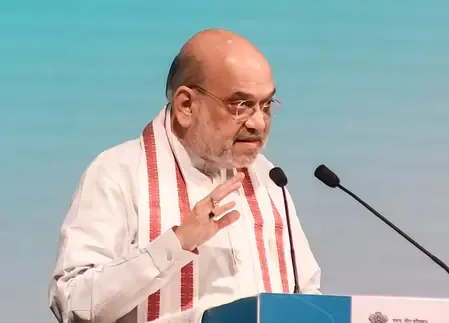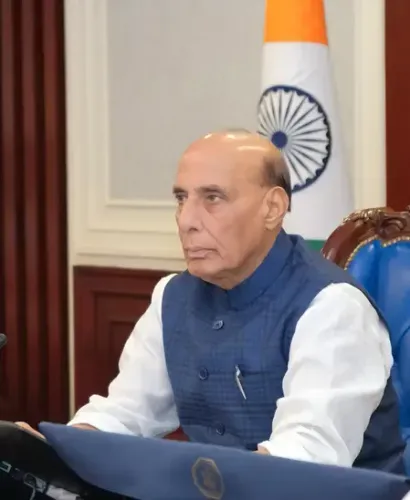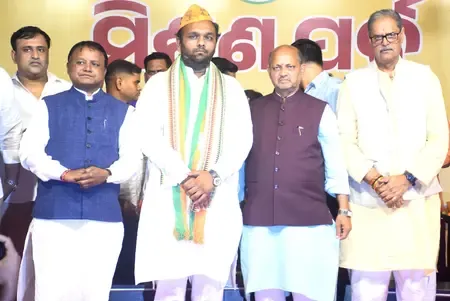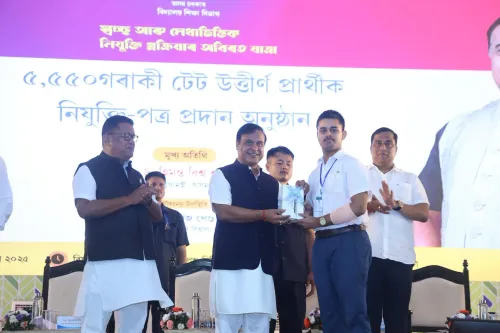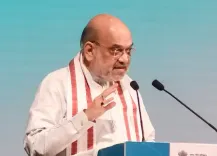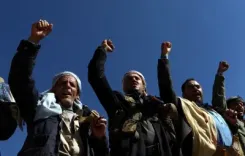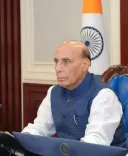Did Revanth Reddy's Comments Reveal Congress's True Stance on Hindutva?

Synopsis
Key Takeaways
- Nishikant Dubey's criticism highlights internal party dynamics.
- Revanth Reddy's statements emphasize Congress's relationship with minorities.
- Opposition backlash points to the volatile nature of communal politics.
- Reddy's claims about Muslims and Congress spark controversy.
- The evolving landscape of Indian politics requires careful monitoring.
Bhagalpur (Bihar), Nov 9 (NationPress) BJP MP Nishikant Dubey responded on Sunday to Telangana Chief Minister Revanth Reddy's recent comments regarding Congress and Muslims. Dubey stated that the CM has recognized that the party has nothing to do with Hindutva and is focused solely on Muslim interests. In a corner meeting held earlier this week in Hyderabad's Shaikpet division, Reddy remarked, "Only Congress has granted significant positions to minorities. Congress signifies Muslims, and Muslims signify Congress. In our administration, Hindus and Muslims are treated equally. We practice no discrimination," he asserted.
In his response to Reddy's remarks, Dubey told IANS, "Revanth is a good friend of ours. He has collaborated with us. His pain is evident, and he understands the reality. Congress has no affiliation with Hindutva and is solely focused on Muslims. He has spoken the truth."
Reddy also mentioned that he secured the Kodangal Assembly seat three times with the backing of minorities and claimed there were no issues for minorities during the 20 months of Congress governance.
He reiterated Congress's commitment to the welfare of Muslims and accused BRS of deceiving them. Additionally, he suggested that BRS would soon join forces with the BJP.
Following his statements, Reddy faced backlash from opposition parties and Muslim groups for allegedly suggesting that Muslims owe their existence to the Congress party, asserting that his comments were misinterpreted.
Reddy declared that he has been a secular leader since entering politics.
Bharat Rashtra Samithi (BRS) and various Muslim organizations condemned Reddy's statements.
Muslim groups deemed the reported statement, "Congress hai toh Musalman hai, Congress nahi toh aap kuch nahi (Muslims exist because of Congress. Without Congress, you are nothing)," as offensive, demanding an apology.

